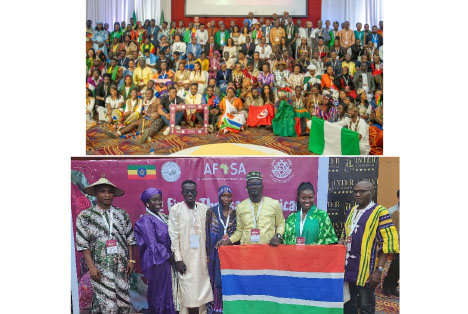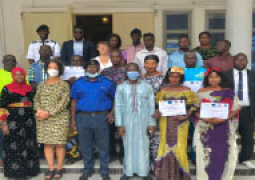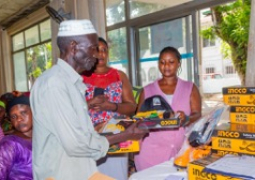
The call was made by youth-rep drawn from across the continent at the just concluded three-day youth summit on Food Systems and Agroecology held in Addis Ababa, Ethiopia.
The forum held from 14-16 October, 2024, gathered youth from 47 countries at the First Thousand African Youth Summit on Food Systems and Agroecology, where youth also declared their united mission to transform Africa’s food systems.
In addition, this forum brought together over 300 youth in person and more than 1,000 participants virtually, offering a powerful platform for deep discussions on the future of Africa’s food systems.
The event created an opportunity for participants to deepen their knowledge and understanding of agroecology’s transformative power in building food sovereignty across the continent, where they also renewed their commitment to being part of a growing movement for people-powered food sovereignty, where their voices and actions shape the future of Africa’s food systems.
At this continental event, the Gambia was represented by 6 participants: Samba Faye, Chief Executive Officer of Plantation Nurseries, Saikou Bah of Action Aid-The Gambia, Sariba Cham of NACOFAG, Fatou Sawo, Chief Executive Officer at Hope Farm Foundation, Mariama Conteh, a student at the University of The Gambia and Alkali M.F. Ceesay, Program Manager of National Alliance for Agroecology-The Gambia.
Also, the participants at the event called for a shift to agroecology across Africa’s food systems, ensuring sustainable resource management, local value addition, and equitable access to healthy, culturally appropriate food.
They also stressed the need for increased investment in agroecology, supporting small-scale farmers and fostering youth-driven agroecological entrepreneurship for a resilient food system.
The youth further called for equitable access to land, water, energy, and vital resources for youth, small producers, and entrepreneurs to drive agroecological innovation and facilitate digital inclusion for youth in agroecology, providing access to technologies and training for sustainable development.
Other demands include to safeguard land rights for youth, especially women, indigenous, and marginalised groups, ensuring fair access to resources for entrepreneurial growth, strengthen political dialogue with youth to promote agroecology and sustainable food systems and empower young researchers and entrepreneurs by providing opportunities to implement agroecological solutions on the ground.




